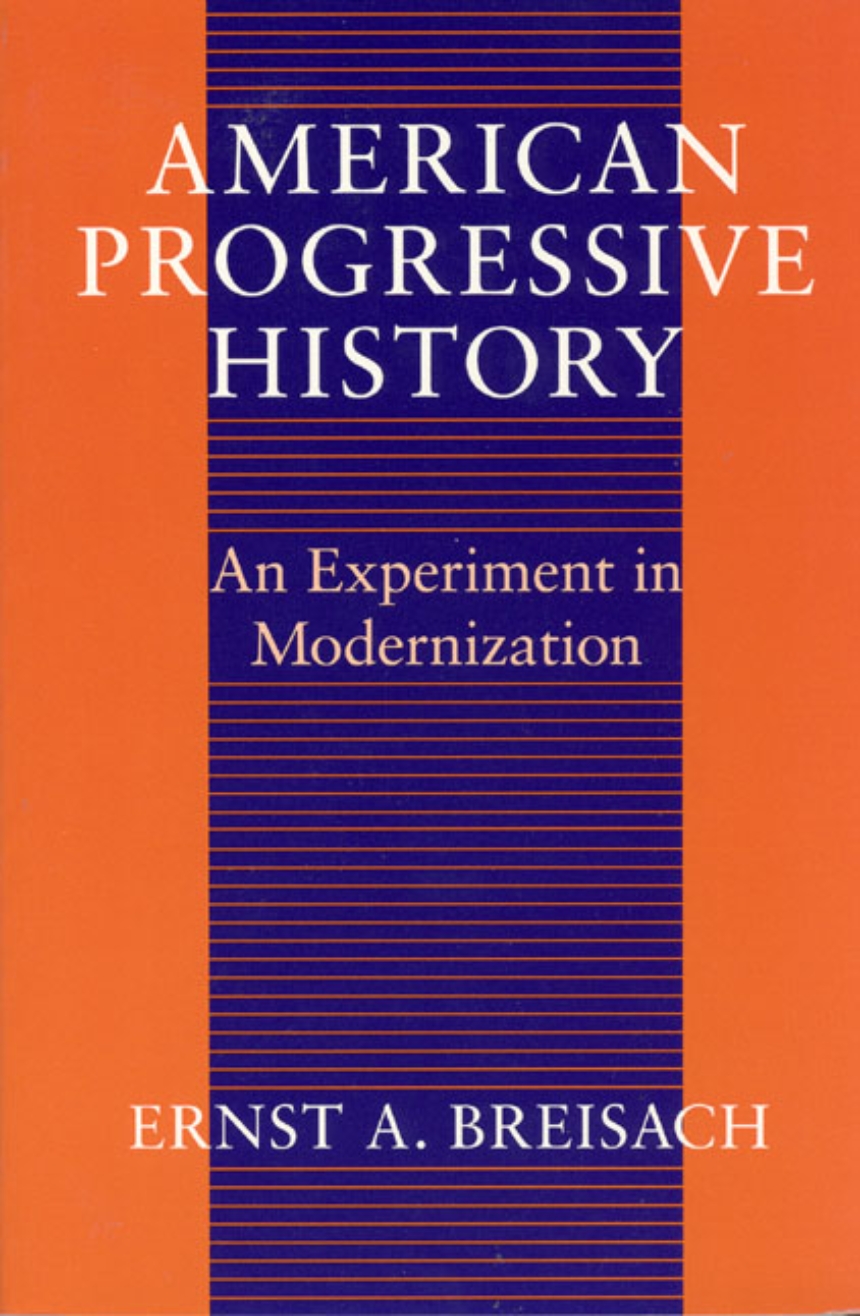American Progressive History
An Experiment in Modernization
American Progressive History is the first book to relate the story of Progressive history through all its transformations from its emergence in the early 1900s to its demise in the 1940s.
Focusing his account on the work of the movement’s most important representatives—including Charles Beard, James Harvey Robinson, and Carl Becker—Ernst Breisach demonstrates that Progressive history is distinguished by its unique combination of beliefs in the objective reality of historical facts and its faith in the inevitability of the progress of the human race. And though he discusses at length Frederick Jackson Turner’s contributions to the creation of a modern American historiography, Breisach sets him apart from the scholars who shaped Progressive history.
While Progressive history is usually treated in isolation from simultanieous movements in European historiography, Breisach shows how it was formulated in the face of the same cultural pressures confronting European historians. Indeed, it becomes clear that until the 1930s the Progressive historians’ confidence in the validity of historical investigation and the progress of civilization shielded American historians from the skepticism and cultural pessimism which characterized many of their European contempories.
Breisach’s exceptionally broad and subtle analysis reveals American Progressive history to be an important and innovative experiment in the international quest for a New History, as well as a coherent school of thought in its own right.
Focusing his account on the work of the movement’s most important representatives—including Charles Beard, James Harvey Robinson, and Carl Becker—Ernst Breisach demonstrates that Progressive history is distinguished by its unique combination of beliefs in the objective reality of historical facts and its faith in the inevitability of the progress of the human race. And though he discusses at length Frederick Jackson Turner’s contributions to the creation of a modern American historiography, Breisach sets him apart from the scholars who shaped Progressive history.
While Progressive history is usually treated in isolation from simultanieous movements in European historiography, Breisach shows how it was formulated in the face of the same cultural pressures confronting European historians. Indeed, it becomes clear that until the 1930s the Progressive historians’ confidence in the validity of historical investigation and the progress of civilization shielded American historians from the skepticism and cultural pessimism which characterized many of their European contempories.
Breisach’s exceptionally broad and subtle analysis reveals American Progressive history to be an important and innovative experiment in the international quest for a New History, as well as a coherent school of thought in its own right.
Table of Contents
Acknowledgments
Introduction
Pt. 1: The Path to Progressive History, 1890-1904
1: The American Sense of History and the Uncertainties of Modernity
2: A Temporary Reassurance: Scientific History
3: The Young Turner’s Quest for a New History
4: The Prelude to Progressive History
Pt. 2: The Making of Progressive History, 1904-1917
5: Putting a Progressive Accent on Encompassing History
6: The Redefinition of History’s Truth and Usefulness
7: The Fragile Alliance between Progressive History and the Social Sciences
8: Sorting Out History’s Grand Forces
9: Beard’s Economic Interpretation of History
10: A Sense of Triumph
Pt. 3: A Decade of Fruition and Stagnation, 1920-1929
11: A Defiant Reaffirmation
12: The Quasi Alliance with the Social Sciences
13: The Battle for Progress
14: The Twilight of Certainty
Pt. 4: The Relativist Experiment and Its Reassessment, 1929-1948
15: Collapse in a Triumphant Mode
16: Becker’s Struggle for Usefulness
17: Beard and Post-1935 Reality
18: Heritage and Assessment
Notes
Bibliographic Note
Index
Introduction
Pt. 1: The Path to Progressive History, 1890-1904
1: The American Sense of History and the Uncertainties of Modernity
2: A Temporary Reassurance: Scientific History
3: The Young Turner’s Quest for a New History
4: The Prelude to Progressive History
Pt. 2: The Making of Progressive History, 1904-1917
5: Putting a Progressive Accent on Encompassing History
6: The Redefinition of History’s Truth and Usefulness
7: The Fragile Alliance between Progressive History and the Social Sciences
8: Sorting Out History’s Grand Forces
9: Beard’s Economic Interpretation of History
10: A Sense of Triumph
Pt. 3: A Decade of Fruition and Stagnation, 1920-1929
11: A Defiant Reaffirmation
12: The Quasi Alliance with the Social Sciences
13: The Battle for Progress
14: The Twilight of Certainty
Pt. 4: The Relativist Experiment and Its Reassessment, 1929-1948
15: Collapse in a Triumphant Mode
16: Becker’s Struggle for Usefulness
17: Beard and Post-1935 Reality
18: Heritage and Assessment
Notes
Bibliographic Note
Index
